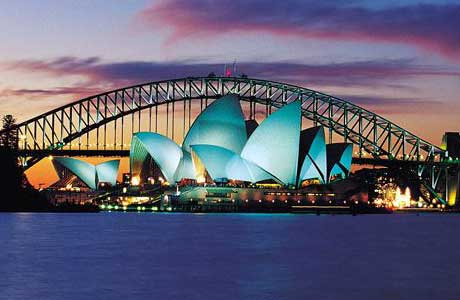Why Australia?

Every year, around 300,000 students from over 100 countries across the world are found heading to Australia for their studies. Australia is also home to five out of the 25 most livable cities across the world. Insofar as Nepalis students are concerned, the country had stood third after the United Kingdom and the United States in the list of most sought-after academic destinations just a few years ago. Now, however, it has climbed to the top spot. The fact that Australia boasts world-class academic institutions, part-time and post-study work facilities and a relatively safe environment insofar as the students’ investment is concerned are what have made it the most preferred place for higher study at present. Records from Nepal’s Department of Scholarship at the Ministry of Education show that of the around 15,000 No Objection Certification Letters have been issued for 64 countries in the last eight months of the current fiscal year, 8,959 have been for Australia alone.
The number of Nepali students opting for an Australia n education had soared in the year 2007-2009, but dropped significantly thereafter when the Australia n government issued stricter visa regulations for students. The adoption of the streamlined visa policy (SVP) two years ago, however, has raised figures once more.
It was in order to ensure that only genuine students are given opportunities to pursue higher education that the Australia n government had introduced the new visa policy for international students on March 24, 2012. Before the policy had come about, there were very different criteria for the selection of those from developed and under-developed countries. Now, however, all international students are treated alike during the selection process. What the SVP has done is allow the universities, rather than the Australia n High Commission, the right to make decisions regarding the selection of students. And students with positive academic history, command of the English language, competency, and sound financial backing are considered ideal students for an Australia n education.
According to the Australia n Department of Immigration and Citizenship, a ‘genuine’ student is one whose intention it is to obtain a successful educational outcome, who has the educational, linguistic and financial background to support their dreams, and who possesses a reasonable chance of achieving these. Education consultants here generally suggest that students undergo thorough research to ensure that they are the right candidates before they place their applications. It’s a decision that calls for a lot of introspection; one should select the university and course based on one’s career aspirations and scope. They should also evaluate a particular institution’s status, cost and location before making any big moves.
“ Australia is not a cheap place to study,” says Prakash Pandey, the managing director at Mate’s Education, adding that only those who can manage the costs for the entire duration of a degree should think of applying. On average, the yearly tuition feel for the Bachelor’s and Master’s level stands at AU$20,000, while the Australia n government has fixed the figure of AU$18,610 per annum as the living cost for a single student—in addition to the insurance premium. A bank balance of around Rs 3.5 million is also required as proof that one can bear the remaining costs.
Education consultants do say that students can manage their living expenses through part-time jobs that can be taken up for 20 hours a week and full time work during vacations, given that the minimum per hour wage in the country is around AU$16.
A recent ranking by the Times Higher Education shows the University of Melbourne, the Australia n National University, the University of Sydney, the University of Queensland and the University of New South Wales all fall among the top 100 universities in the world. Saroj Kumar Basnet, the chief executive officer at the Netcotec group of companies says that it is extremely encouraging to see how well Australia n universities are rated the world over, as well as the kind of future career prospects that are available in the country. “Study might be the sole motive of students going to Australia , but it helps to know that there are ample job opportunities waiting for them once they graduate as well,” Basnet says.
Consultants claim that the investment made in higher education in Australia can easily be recovered through post-study work (PSW), available to all students once they’ve graduated. One can get two years of PSW after the completion of Bachelor’s and Master’s degrees, while it is three and four years for those who’ve done a Master’s in research or a doctorate degree respectively.
In addition to the PSW facility, there also exists a legal safeguard for the students’ investment, which has played a big role in drawing international students to the country. Australia is among a handful of countries in the world that have such a provision in place. The Education Services for Overseas Students (ESOS) Act has certain requires it deems mandatory for all Australia n academic institutions, and it is this act that ensures tuition protection services. This means that any university or college that is shut down or discontinues the course a particular student is enrolled in has to either reimburse the fees or arrange for the student to study in another university or college.
As per the act, all academic institutions that are eligible for enrolling foreign students are listed on the publicly available Commonwealth Register of Institutions and Courses for Overseas Students (CRICOS). Even the marketing materials these academic institutions employ are monitored to ensure that the information they provide to students is accurate and not misleading.
“ Australia possesses the right kind of cosmopolitan atmosphere that students can really benefit from,” says Khem Raj Sang-raula, the managing director at Expert Educa-tion and Visa Services. “No wonder, too...it is a country of immigrants, after all.”
source: Ghimire,Binod (2014),"Why Australia?", The Kathmandu post, 28 march 2014
Posted on: 2014-03-27































